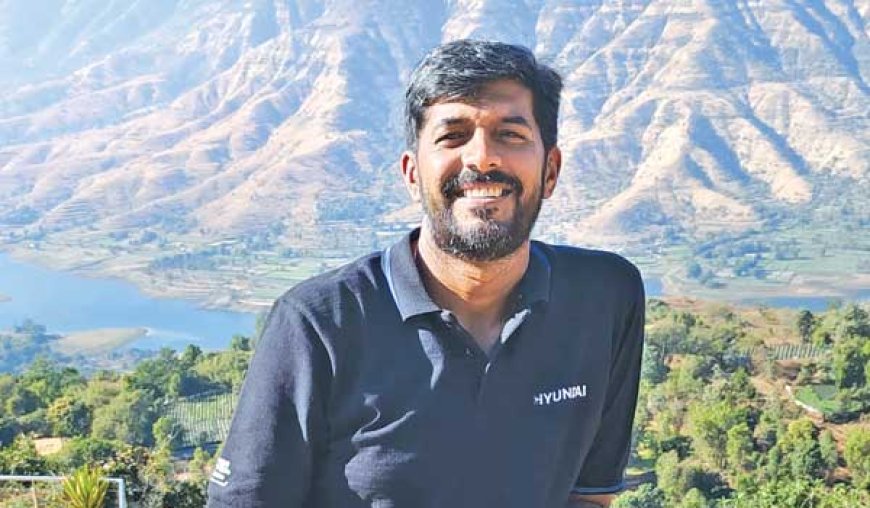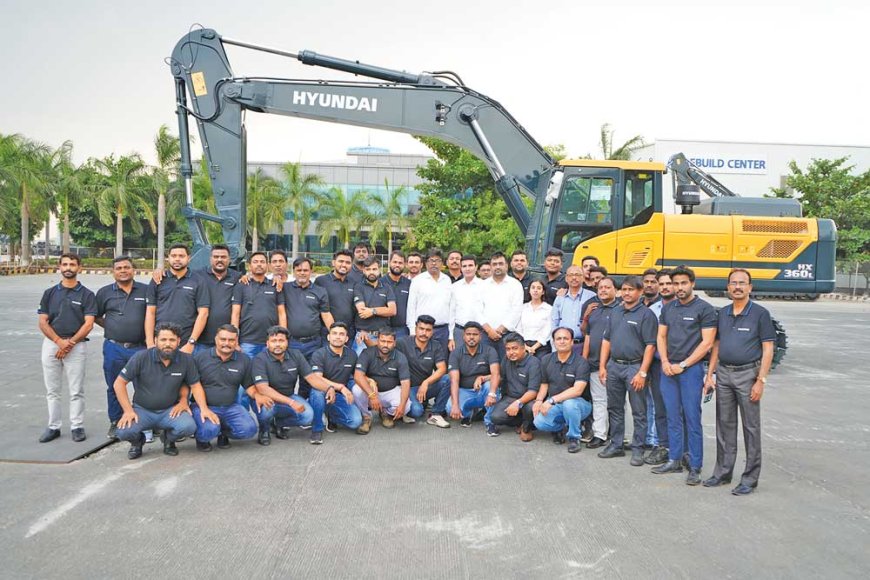Our programs aim to foster a wide range of skills and competencies in operators crucial for their role in the industry.

Tarun Jha
After Service and Parts, HD Hyundai Construction Equipment India
How do you look at the 10 years journey of Infrastructure Equipment Skill Council (IESC) as an apex skilling body for construction equipment?
The decade-long progression of the Infrastructure Equipment Skill Council (IESC) represents a notable achievement within the training framework of the construction equipment industry. Serving as the foremost authority in skill development, IESC has been instrumental in establishing and elevating the capabilities of professionals in this field. Throughout its tenure, IESC has been dedicated to crafting training initiatives aligned with industry standards, cultivating partnerships with key stakeholders, and responding to the evolving demands of the sector. Through its unwavering commitment to excellence and innovation, IESC has empowered the workforce in the construction equipment industry, enhancing their proficiency and effectiveness, thus fostering the overall advancement and maturation of the sector.
How do you assess the current skill level of construction equipment operators in the industry?
The proficiency of construction equipment operators varies within the industry. While some demonstrate expertise in operating machinery, there are deficiencies in basic education and language abilities among others. These shortcomings can impede their potential for advancement and entrepreneurship. At HD Hyundai, we acknowledge the significance of tackling these obstacles and providing operators with thorough training programs. These programs cover safe operation, maintenance protocols, and communication skills. Our goal is to enrich their abilities, equipping operators with the necessary competencies to succeed in the ever-evolving industry environment.

What inspired your company to develop training and skilling initiatives for construction equipment operators?
Our dedication to delivering excellence and ensuring customer satisfaction has motivated us to establish training and skill development programs for construction equipment operators. We understand that skilled operators are essential for maximizing machinery efficiency and performance. Through our investment in training initiatives, our goal is to narrow the skills gap, equip individuals with the necessary knowledge and expertise to succeed in their positions, and ultimately elevate overall customer satisfaction.
Briefly outline the objectives and goals of your training programs for operators. Could you describe the structure and format of your training programs?
Our training programs for operators aim to improve their technical skills, raise safety awareness, and cultivate a culture of ongoing learning and growth. These programs feature a thorough curriculum covering topics such as hydraulics, electrical systems, troubleshooting, diagnostics, and aggregate assembly. Additionally, soft skills training is incorporated to enhance communication and teamwork abilities. The structure comprises a mix of classroom instruction, practical training, and digital learning opportunities, providing participants with a comprehensive and interactive educational experience.
What challenges or gaps have you identified in their skill sets?
An obstacle we’ve recognized is the restricted educational background and language impediments among certain operators, potentially obstructing their advancement. To tackle this, our training initiatives prioritize fundamental communication abilities and terminology, empowering operators to surmount these hurdles and augment their knowledge base. Moreover, despite operators’ proficiency in machinery operation, there might exist gaps in comprehending total operational costs and advanced technology utilization, areas our programs strive to address.
What specific skills and competencies do these programs aim to develop in operators?
Our programs aim to foster a wide range of skills and competencies in operators crucial for their role in the construction equipment (CE) industry. With the advancements in equipment technology, operators need to adeptly manage a blend of machinery and attachments to efficiently complete projects. By ensuring minimal downtime, enhancing equipment lifespan, and prioritizing safety, operators can contribute to increased profitability and reduced risks on-site. This underscores Hyundai’s commitment to a safety-first approach across the entire ecosystem.
How do you incorporate emerging technologies into your training initiatives?
We integrate cutting-edge technologies into our training efforts by utilizing real-time data and practical examples drawn from state-of-the-art equipment equipped with advanced features. This interactive approach enables operators and maintenance staff to grasp the practical significance of technical elements within actual scenarios, thereby keeping them abreast of industry developments. Through the incorporation of emerging technologies, we guarantee that our training initiatives stay pertinent and efficient in equipping participants to meet the changing requirements of the sector.
How important do you think certification is for construction equipment operators in today’s industry? How do you evaluate the effectiveness of your training programs?
Certification holds significant importance for construction equipment operators in the current industry landscape, as it validate their proficiency and competence, thereby improving their prospects for employment and credibility. We assess the efficacy of our training initiatives through thorough evaluations, feedback mechanisms, and performance appraisals. Consistent monitoring and enhancement procedures guarantee that our programs adhere to industry benchmarks and adequately prepare participants to excel in their respective roles.
How do you stay updated with industry trends and best practices in operator training?
We remain informed about industry trends and best practices in operator training by actively engaging with industry associations, attending conferences and seminars, and partnering with technology firms. Furthermore, we continuously conduct research and benchmarking activities to recognize emerging trends and integrate them into our training efforts. This ensures that our programs stay up-to-date and in line with industry norms, guaranteeing their relevance and effectiveness.








